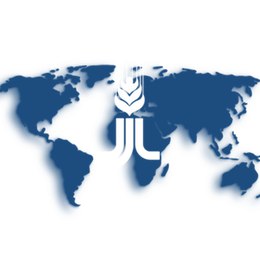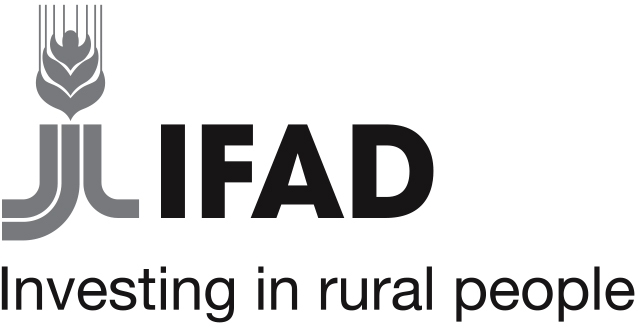Household management methods for rural families
"Planning together has made us more united, and my relationship with my husband is very good."
Abigael, wife in male-headed householdBACKGROUND
In many regions, the family unit is the crux of gender inequality, with members sharing resources and roles in ways that limit cohesion and contribute to poverty. Household management methodologies (HHM) help families re-evaluate roles, aims, opportunities and limitations and develop new ways of being together.
WHAT’S INVOLVED
GALS process
The GALS methodology uses structured steps, visual tools and experiential learning to help families assess their ways of working together and develop a new vision for the future.
Household mentoring
Locally-trained mentors work with vulnerable families to resolve problems and share knowledge and experience.EXPLORE THIS SOLUTION
The HHM solution can offer
- Structured methods, such as GALS, for supporting families in assessing their goals, plans, challenges and opportunities
- Experience in implementing HHM across a wide range of projects, and an understanding of the challenges that may arise

Countries involved
Burundi, Democratic Republic of the Congo, Ethiopia, Malawi, Nigeria, Rwanda, Sierra Leone, Uganda, Zambia
Project partners
Oxfam Novib
Share this solution
Bookmark this solution
BookmarkShow Full Solution
Summary
Household methodologies (HHM) are participatory approaches to help family members work together to improve relations and decision-making, and to achieve more equitable workloads.
The methodologies help families to define self-generated solutions, using visuals and action-oriented learning, and focus on gender equality as a collaborative process for women and men of all ages. Fighting deep and rooted causes of gender inequalities begins at this primary level, where gender roles and norms are formed.
Challenge
In many parts of the world, especially rural areas, households are frequently not cohesive units with shared resources, benefits, needs and goals. Instead, they are at the core of inequalities, as male and female members - as well as younger and older members - do not have equal power and decision-making roles. In many instances family members encounter difficulties working together to improve relations and decision-making, and to achieve more equitable workloads.
Solution
Two approaches were developed to address the challenges outlined above.
GALS is a community-led empowerment methodology that gives women and men of all ages and educational levels more control over their lives. In practice the GALS methodology uses a step-by-step journey from household vision to goals to actions. It breaks through the gender-based barriers within the families, which prevent them from achieving their vision of wealth creation, gender justice and social empowerment. Applying GALS tools and methodology, which are applicable in different cultural and social contexts within and outside the households, both women and men develop their own road maps and individual visions for change, to move out of poverty.
Household mentoring is a partnership system created within the community: a locally trained mentor visits vulnerable households in order to share knowledge, experiences and skills that will advance the personal, social and economic growth of the members of the family. The objective is to solve issues within the household, and the mentor's role is to guide the family members through an analysis of the situation, setting priorities and designing an action plan.
Overall, the power of this methodology is in its ability to help household members t communicate, moving from a "blame focus" to solutions through dialogue. The HHMs tools may be used by individuals at the household level, among groups (such as farmers' groups or value chain actors) and by organizations. They are also proving useful in multi-stakeholder participatory planning workshops for gender-equitable and pro-poor value chain development.
Results
Experience shows that HHMs can be integrated into a range of development interventions and implemented in different cultural and social contexts, as well as specific technical interventions – such as value chain development, rural finance or agricultural extension. The adoption and mainstreaming of HHMs, especially GALS, within IFAD-funded projects has contributed to increases in poor rural people's productive capacities, improved gender equality within the household, and enabled rural people of all ages and gender to become more empowered and able to realize their potential and contribute to the creation of a more resilient and sustainable smallholder farming and rural livelihoods system. These approaches have benefited women, men and their families and communities. Local and national governments are increasingly seeing the possibilities and benefits for change, and how GALS tools can improve local economies and the democratic process.
For example, in the Agricultural Support Programme (ASP) in Zambia, significant improvements were registered in:
- Increases in income and diversified income sources
- Better ability to respond to drought
- Improvements in women's access to and control over resources and household incomes
- Strengthened relationships between women and men
- More equitable distribution of workloads
- Increased self-esteem and confidence in women.
Lessons learned and potential for replication
Adoption of the HHM approach depends on the following considerations:
- An enabling environment and support are needed at the community level, including local leadership.
- First-hand experience, such as exposure visits and learning routes, is essential in order to witness the empowerment of individuals, their new-found confidence, and their ability and willingness to share their stories on their transformative experiences, which have a concrete impact on their income generation and well-being.
- Community-led approaches to transform gender relations and norms are brought to scale within project time frames if included in design and given appropriate resources and strengthened sustainability.
The HHMs has considerable potential for replication as shown by several initiatives promoted by IFAD and attended by rural communities, CSOs, IFAD staff, IFAD-funded projects’ beneficiaries, NGOs, bi-lateral donors and international agencies.
Next steps
Broader integration of HHM into several IFAD-funded projects is already underway. As one of the main conclusions of the 2016 Forum on Empowerment through Household Methodologies, there is a plan to set up learning centres. This would involve local organizations and other development stakeholders involved in capacity-building and community development applying HHM within their communities, with a focus on knowledge-sharing and skills development.
These hubs will be further developed with a forthcoming IFAD grant on scaling up HHM in WCA, ESA and NENA regions.
Solution Video
Solution Image
Solution Document Downloads
Solution Additional Resources
Household Methodologies ToolkitLast update: 09/08/2018


